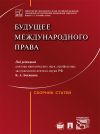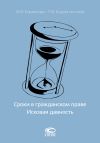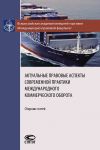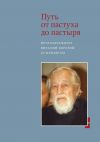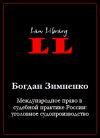Читать книгу "In Memoriam. Сборник воспоминаний, статей, иных материалов"

Автор книги: Виталий Кабатов
Жанр: Биографии и Мемуары, Публицистика
сообщить о неприемлемом содержимом
Данное видеоинтервью (длительностью в 94 минуты) для указанного фильма С.Н. Лебедев дал шведскому документалисту Мартину Боргсу на английском языке в Москве в ноябре 2015 г. Отрывки из него вошли в данный фильм.
Этот фильм был впервые показан 19 января 2017 г. в Стокгольме в кинотеатре «Rigoletto» в рамках празднования 100-летия Арбитражного института Торговой палаты г. Стокгольма 11
www.sccinstitute.com/about-the-scc/scc-100-years/the-quiet-triumph
[Закрыть].
Стенограмма данного интервью представлена для настоящего сборника Н.М. Петрик (Арбитражный институт Торговой палаты г. Стокгольма). Ранее оно не публиковалось.
Данная стенограмма приводится дословно (не считая некоторых редакционных изменений и исправлений опечаток в фамилиях, сделанных составителем). Она приводится почти полностью, за исключением ее финальной части, в которой на протяжении пары минут обсуждались некоторые личные вопросы, интереса для широкой публики не представляющие.
При чтении этой стенограммы важно учитывать, что английский язык для С.Н. Лебедева родным не являлся.
Данное интервью является последним, которое дал С.Н. Лебедев. Но оно уникально не только этим: в нем содержатся сведения, которые имеют огромную ценность для понимания истории развития международного коммерческого арбитража в СССР и в современной России.
M.B.: So, Professor, you have more or less devoted your life to arbitration. In your opinion, what is the essence of arbitration? What is the essence of arbitration, what is arbitration really about?
S.L.: Your question is very simple, and very difficult to answer. What is the essence of arbitration? Well, to tell legally, it is a procedure for settlement of disputes between the parties, and if it is a commercial arbitration it is a procedure for settlement of disputes between parties to commercial transactions, to contracts. And such disputes do arise, even if there are good relations between the parties. Nevertheless, many problems arise which cause differences, arise between the parties. If it is international relationship, then is a problem of cultural traditions in countries of each party. They all may be very important for the parties, which also must overcome themselves. And then the question is: how resolve these problems? How to resolve? And then to invite people who are called, nowadays, arbitrators, to settle this dispute, to help the parties to settle this dispute.
M.B.: Given your long experience with international arbitration, what would you say that the key obstacle to peaceful resolution is? What is the major obstacle that the arbitrators have to overcome in order to find a solution?
S.L.: There is a problem for the arbitrators in dealing with disputes in commercial fields: to take into account the situation in the country of each party to that transaction. Take, for example, a dispute between Russian and English companies: it is important to see what are the regulations of certain problems according to English law and according to Russian law? And there are differences in such regulations. How to overcome it? Of course, there is a possibility to determine which law is applicable, which should govern the relations between the parties. Yes, it is, let’s assume that the parties have agreed that English law would be applicable. But it does not mean that arbitrators should ignore what are the regulations in Russia? Even if English law is applicable. And the differences in regulations, in customs, trade customs and so on, are difficult. Of course, during globalization period which is existing right now, it is important to go to unification, and to try to adopt international conventions on certain problems of trade. And for me, I always recall with great sympathy the adoption of the Vienna Convention on the international contracts of sale. I had the chance to participate in preparation of that convention in UNCITRAL and I believe it is a great achievement, actually, for international trade, because contracts of sale are the most used form of relationship in foreign trade and international trade. And so it is a great achievement for international practice. But there are other aspects, other forms of intentional transactions, where there are no such unification, and then the problem of application of national laws remains. And it is very important to take into account these regulations existing in each country, even if the law of one country is formally applicable in this case.
M.B.: Professor, may I ask a personal question? You were born in 1938, I believe? Russia was a very different country back then. What role do you think that international trade have played in the development of Russia during your lifetime?
S.L.: Well, actually, that is a very general question for me to answer. What I can say, when I graduated from my school in 1952, it was necessary for me to find what to do later. And I was thinking, I was 18 years old at that time, and it was difficult for me to find what to do. But there was an interest for various reasons to study law. And I first decided to go to the law school of the Moscow State University. And I tried to find out what they were studying and so on. And I was not particularly happy. And then I was recommended to go to the Institute of Foreign Trade, to the law school in that Institute. And that happened to be most interesting for me, because the programs in that law school concerned not only Russian law, but also laws of other countries, related to commercial transactions, relationships and so on. It happened to be very interesting to me. And I studied in that law school, just to try, and it was really interesting, it happened to be very interesting to me, from year to year. I believe I thought initially that one year in that school would show to me whether it was interesting or not. And from one year to another year, it was more and more interesting to me. And I can tell you that this year I happened to be for arbitration in Germany, and I flew to Hamburg and then I went to Kiel. Why? In Kiel, there is my Professor, who was my Professor in 1954, in Moscow, in my law school, who was teaching private international law, Professor Boguslavskiy. And now he is very old, and he is living in Kiel, and I went to Kiel to see him. And I brought to him my notes of his lectures, which I made in 1954. I’m sorry, in 1951–1952, when I was graduating my law school. So I showed those notes to him. And it was very interesting for me, because it concerned international trade. Of course, I don’t have experience and knowledge about international trade, about economic aspects and so on, but certain aspects of legal regulations are very interesting to me. And for that reason I believe that foreign trade is a very important thing. Although I am not an expert in economic aspects of that field of relations between countries.
M.B.: If I may continue on that matter, already back in 1940, there was a Soviet-Swedish agreement on arbitration for the future trade. Could you say anything about the role of Sweden in arbitration, already back in the ’50s and ’40s? Did it play any important role in arbitration for Soviet trade already back then?
S.L.: Well, now you deal about arbitration in Sweden, and that is perhaps the most important aspect of our interview today. I tell you that I was a young student at that time, in my Institute of Foreign Trade in Moscow, which I graduated. And I worked for two years in the foreign trade organization here in Moscow. And I was a young lawyer. And of course it was important how certain disputes were to be decided. That is natural for a lawyer, if you are a lawyer you are always interested, how disputes, which can arise from the contracts with which you are concerned and involved, should be resolved. And you know, I had two old Professors, first of them was my Professor Aleksandr Keilin, who was my teacher in the institute, and then in my practical work. And then there was Professor Usenko, who was a famous lawyer in the Ministry of Foreign Trade. And I had contacts with them. And they decided to invite me to go with them to Stockholm, to be an assistant of Russian parties involved in arbitration in Stockholm. It was my first experience about arbitration in Stockholm.
M.B.: Which year was this?
S.L.: Well, with year, it is difficult to tell exactly which years it was. It was ’60s, about my first appearance in Stockholm. Not as an arbitrator but as an expert to Russian parties involved in that arbitration.
M.B.: So arbitration, Stockholm already then played an important role for arbitration for Russia?
S.L.: Yeah, I believe so. And for me it was important that these two persons whom I respected very much, they told that, perhaps, Stockholm was a good place to have arbitration between Soviet parties, at that time, and the parties from other countries. Not with Swedish companies, but other companies. So providing in contracts that arbitration should be held in Stockholm, such a provision. And they told me that it was a good decision. In spite of the fact that, of course, contracts provided for arbitration in other countries, including London, Paris, yes, but…
M.B.: Why Sweden?
S.L.: Why Sweden? Later, when I became more educated, so to say, the reason was that it was important that different systems to which parties belong, political, economic systems, it was an important factor, were to be taken into account, in the sense that arbitrators were to take that into account, and nevertheless provide an objective, impartial settlement of disputes between Soviet parties, at that time, and parties from other countries with whom arbitration was provided in the contract. So how to do this? That is a very difficult question. Indeed, later I became an arbitrator, and myself participated in various arbitration, and I know how difficult it is to take into account special provisions in Russian laws and special provisions in the laws of the country of the other party. How to take that into account? And so they make an award, which is good for reasonable appreciation. It does not mean, of course, that both parties are always satisfied with the award, of course. There are dissatisfaction to one of the parties, or even to both parties, and so on, but for arbitrators, nevertheless, it is important to make an award which is reasonably judged, which should be considered as impartial and good, appropriate award. I remember, of course, one of my first arbitrations in Stockholm. It was a dispute between a Soviet company and an American company, and it was very interesting case to be remembered by me, for all my years’ life. I was appointed by the Soviet company, and American party appointed Professor John Hazard, and John Hazard was a famous American expert in Soviet law. Very educated, excellent Professor. And the chairman was Mr. Mangård, which was a famous Swedish lawyer, and later, I believe he was the chairman of a meeting between Soviet lawyers and American lawyers about development of optional clause [Речь идет о Факультативной арбитражной оговорке для использования в контрактах в советско-американской торговле, подготовленной ТПП СССР и Американской арбитражной ассоциацией в 1977 г. применительно к арбитражу в Стокгольме – Примеч. сост.].
But it happened later. But at that time it was a dispute, a very difficult case had to be resolved by these three arbitrators. And Professor Hazard was very informed about Russian regulations. It was state monopoly of foreign trade in Soviet Union at that time, and free market in the United States, and how to take all these aspects in our specific case, and it was for Professor Mangård, who was sitting with closed eyes, I remember, I remember him with closed eyes, and listening to Hazard, and listening to me, what we are thinking, and then it was up to him to make an award. To make a final decision. It was really a very difficult case. But for me it was very good example.
M.B.: Is it possible to tell what the case was about or is it still confidential?
S.L.: No, it is not so much confidential. But it happened long ago, and for me to recall exactly what were the exact aspects of that dispute is very difficult. I should not try this. I could try recall, to look into my notes, but not at this time.
M.B.: Do you recall the Russian view of Sweden? What was the Russian view of Sweden back then?
S.L.: You know, when we were discussing about optional clause for Soviet and American parties’ contracts, and we finally came to agreement with American side, and Howard Holtzmann in particular, who was an excellent American lawyer, who represented the American party, we came to agreement that Sweden was a good place for arbitration for such contracts. And this optional clause should have been recommended to Soviet and American parties, when they make contracts. I remember Howard Holtzmann was smiling and said: “Okay, this is a concession from our side, from American side.” And I ask him: “Why?” “Well”, he said, “because Sweden is a socialist country. And you are a socialist country.” It was a joke, of course, and we did understand that Sweden was not a socialist country, like our own country, like Soviet Union. No, of course. But from our side we expected that we can knew almost for sure that arbitration in Stockholm would be impartial. In spite of the fact that parties to the contract, to the dispute, are from socialist country, Soviet Union, and from American country, capitalist country. Nevertheless we expected that arbitration should be appropriate in spite of the differences which existed. Why so? I cannot tell you why so. For me, very important were recommendations of Professor Keilin and Professor Usenko, who had experience in that field, and who educated me, that that was the situation, and you can expect, because of their own personal experience. That was very important for me. Otherwise, I’m not an expert about Sweden, except history, of course, and history was not always good for Russian and Swedish relations, many centuries ago. No, it was Sweden today. So that was our solution. Then, what was important for me also, that I met many Swedish lawyers in arbitration, also in international conferences and so forth. There was a feeling, for me, that we can rely on those people, when they act, and usually, they act as presiding arbitrators. There is, for instance, American arbitrator and Soviet arbitrator, and the presiding arbitrator, who knows the Swedish law, and we can expect that it would be so. But of course, you know, it is so, as a general approach, and in my experience, in my practice, as arbitrator in Sweden, I realized that this is true. But it does not exclude certain case, where the situation may be different. Except, from my point of view, maybe I’m not true in my appreciation, but it appears to me that there may be not appropriate award made in that or another case. There is always such a possibility, that is unavoidable, and if it is arbitration here in Moscow, I know for sure that certain awards are not appropriate from the standpoint of foreign arbitrator who participate here in Moscow as arbitrator. So such disputes arise. What is important then, and again, from my recent practice in Sweden: what is the position of the Swedish court? Because there is a possibility to appeal against the award before the Swedish Court of Appeal. Yes, Swedish Court of Appeal, how that court will act with regard to such a complaint against the award, that is very important thing. I’ll tell you… I hope I don’t speak to long?
M.B.: No. But could I ask, just before we leave the choice of Sweden. I just wonder whether the Soviet Union, did you approach other countries for the same purpose? Were there alternatives to Stockholm that were discussed from the Russian point of view?
S.L.: Well, of course, now the situation is such that contracts concluded by Russian companies provide for arbitration in different countries. And now the situation has changed as compared with the situation during the Soviet period. Why? During the Soviet period there was principle of state monopoly of foreign trade. It means that Ministry of Foreign Trade controlled the contracts, concluded by commercial companies, which were state companies. So it was very possible to insist, by the Ministry, that arbitration should be provided in that or another country. Depending on various factors. Now, it is a free market, and now contracts are concluded by Russian companies at their own will, and their own choice, and arbitration is in various countries, in SCC, in Paris, in London Court of arbitration, and in other countries in Beijing and so on. I now participate in arbitration in various countries. I arrived two weeks ago from Bishkek, which is the capital of Kyrgyzstan. Arbitration is provided in Bishkek. That is an agreement between the parties nowadays.
M.B.: And when you were discussing the optional clause which the Americans back in the ’70s. If not Sweden, where would it have been? What other alternatives to Sweden where you discussing with the Americans?
S.L.: Well, I remember, I mentioned Howard Holtzmann. Unfortunately he died recently. He was my good colleague in the field of arbitration. And we discussed various propositions and opportunities. I said: “Okay, let us provide for arbitration in Budapest, in Hungary.” And he said: “No, it might be difficult, let’s provide arbitration in Vienna.” “No, let’s provide for arbitration in Sofia, in Bulgaria, or let’s provide for arbitration in Beijing,” and proposing such ideas, we understood that it would not be acceptable for the other party. So finally we came to Stockholm. But you know, I said that earlier, the difficulty was East-West. Very difficult situation politically, economically, culturally and so on, but nowadays, I hope you receive such a bulletin, which is called GAR. General Arbitration Review. They send it to me, and I hope they send it to arbitration institute and other, and they provide their information developments of international arbitration. Just very short, very short. And then, if you need more information you had to apply to them, and they will give you more information. And recently, just maybe a week ago, I received it, they send many such bulletins, and recently I found an interesting notice there, that Rosneft, that is a famous Russian company for oil transactions, said that “Nowadays, let us not agree for arbitration in countries which apply sanctions, economic sanctions against Russia. Let’s not agree for arbitration in these countries.” What to do, there is no proposition, but that is an interesting notice. Understanding that in such countries there may be some effect on impartiality of arbitrators in this respect. And so it is an important factor. We have arbitration for Russian-American contracts in Stockholm, but as to other contracts, it is important nowadays for lawyers working in certain companies to decide how to agree about arbitration at this moment. I hope the situation will change, but nowadays there is a new aspect in development of arbitration. It has been published so in that bulletin.
M.B.: How would you describe the role of Swedish arbitration in Russia today? Given that perspective.
S.L.: It is important, what is the feeling of Russian companies, who are involved in arbitration proceedings, in actual arbitration proceedings in Sweden. If there is dissatisfaction for some awards, I understand, I said of course, that here may be dissatisfaction. If I lost the case, surely I’m not satisfied. But that is not a decisive factor. Whether the award which I don’t like has been adopted according to the rules and so on, I have nothing to do. It was some fault during the performance of the contract. But if there is some ignorance of important factors when the award was made by the arbitrators, then there is another case, and if it happens once it might be not so important, but if it happens several times with different companies, then there is dissatisfaction. Dissatisfaction on the side of the Russian company or on the side of the companies from other countries who participated in that arbitration. That is an important factor. I cannot tell you exactly what is the situation right now, but it is important. I also received an information in that GAR bulletin, that recently, a Swedish award, of the Swedish arbitration institute award, has been enforced in Belarus. And I know about that case, it was a very difficult case, but nevertheless, the court of Belarus agreed to enforce that Swedish award. That is important, even Belarus party was not satisfied with that award. Nevertheless, the court had agreed to enforce that award. Maybe it will be challenged in the next judicial instance, I don’t know, but at this time, this award has been enforced.
M.B.: May I ask about China? Did you recommend Sweden as a place for arbitration to China as well? After you had decided upon Stockholm?
S.L.: I don’t remember exactly what negotiations we had with the Chinese colleagues at that time. Maybe it was important that we made such an agreement with American Arbitration Association, yes, but we published many information about that agreement with Americans and it was influential for other countries at that time. I was an arbitrator in China, in Beijing, and it was interesting, it was a dispute between a Greek company and a Chinese company and the Greek company appointed me as arbitrator in that case. And I did not know that Greek company, never met them before, and during coffee break, I asked the lawyers from the Greek company, why they decided to choose me as arbitrator in that case, to which I had no relationship, and so on. And the answer was very interesting. They told me, I’m on the list of arbitrators in Chinese arbitration court, and a Greek lawyer told me “You know why? We looked through the list of arbitrators, and you were the only one from the country where the religion is good for us.” All of a sudden, of course, yeah, that was the reason why they used me. Not because I am an expert, no, that was of second importance. The first importance was orthodox religion, that was the most important for them.
M.B.: From your perspective, what were the most important elements of the optional clause agreement? What were the most important elements and what role has it played for international trade?
S.L.: There is a possibility to choose arbitrators in that case, to have arbitration in a certain place. That is an important element of each arbitration agreement. And so, the difficulty, when we consider that clause, the possibility was that if there was a contract between Soviet and American parties, what our company propose with regard to arbitration: “Let’s go to Moscow. Let’s have arbitration in Moscow.” And what American party says: “No, let’s have arbitration in New York, according to the rules of American Arbitration Association.” “Okay,” they say, “Let’s go to London.” “Oh, no, no, no, London and American law and practice are almost the same,” say our companies. “Let’s go to Bulgaria. Oh, you don’t like Bulgaria, let’s go to Hungarian Arbitration.” “Oh, no, let’s go to Vienna Arbitration,” and so on. What to do? It was a very difficult situation. And now there is a clause which is recommended by the Russian Chamber of Commerce on the one side, and the American Arbitration Association in the other side, and approved by the Swedish Arbitration Institute. So it is a good clause. So it is very good for you, for the parties. Put that into the contract. And it is very good, it is not something that the clause is very important by itself, it is just the possibility for the parties to resolve dispute, which is so obvious and very difficult to overcome. “Why,” Soviet company says, “Why we should go to New York?”. And the Americans say: “Why we should go to Moscow? No.” And how to overcome it. And it is a good instrument. So that was the most important reason why that clause was important. But otherwise it is done very well, and it is acceptable for both parties.
S.L.: I remember another arbitrator with whom we had arbitration for, I believe, 3 days. He came to our place of arbitration, said “Hello, hello, good morning, good morning,” and closed his eyes. And during the lunch time, he opened his eyes and we had lunch together. Then we resumed arbitration, he closed his eyes till the evening. And in the evening, he said “Thank you, thank you, thank you.” I cannot immediately recall his name. It was long ago. <…>
M.B.: We were talking about Gunnar Lagergren, Mr. Gunnar Lagergren. Can you recall any memories of him? Would you be willing to share them with us?
S.L.: Well, it was long ago that we had arbitration with him, but he was the presiding arbitrator. He was very, very quiet and we had some discussion, me and American co-arbitrator, and he was listening, listening, listening to us, and it was actually the arbitration according to the optional clause. American arbitrator, me, and he as presiding arbitrator in Stockholm, in his office. I remember his office. And he was hearing us, he was hearing us, and finally he did not propose any award when we finished the proceedings. And he said “I’ll send you my proposals how this dispute should be resolved.” Of course, we were not particularly satisfied, because I wanted to come to Moscow, and to say: “We have won the case.” And I believe the same situation was with my American co-partner in that case, but we accepted that. And then he sent his proposal, his draft award, a very brief how it should be resolved. And he said there, how he would motivate all the propositions and so on and so forth. And for me, that award was satisfactory. I was not sure about my American co-arbitrator partner in that case, but I wrote that I accepted. So, I believe that American arbitrator decided to agree, subject of certain exceptions. But finally, it was a very good award. As I can recall so many years later. But sometimes it happens, that of course Russian regulations sometimes are very strong, and to disregard them would not be an appropriate approach, and if they are disregarded, then it creates certain difficulties.
M.B.: What was Mr. Lagergren’s style as an arbitrator?
S.L.: His style, I believe it was traditional style, it was a possibility to give opportunity to each party to speak as long as they want. Not to interrupt, not to say “Oh, let us stop, you have talked about that.” No. “Okay, let them go, let them go, let them go, let them go.” So it was just a very liberal approach. But I believe that is the situation with all Swedish chairmen, presiding arbitrators whom I’ve met, that it’s just very liberal approach. Each party is given opportunity to speak as long as they wish.
M.B.: Do you have any other memories to share with us about Mr. Lagergren? An episode you recall? With your cooperation with Gunnar.
S.L.: Well, you asked me to recall that? I hope my recollection is correct. We had a meeting with American colleagues in New York. I believe that is correct. There are so many conferences, meetings and so on in various parts of the world, sometimes there is a mixture, but I believe that is correct. We had a meeting in New York. And it was till late evening we finished. And he said “Let us go to my ship, which is in New York port.” His own ship? And we went there. There were 3 Soviet participants of that conference, and from Sweden there were also 3, and 2 Americans, who decided to accompany us to that visit. And we came to the ship. The ship arrived to New York, and it was discharged already. And there was only the master of the ship who met us in the ship. Said, “Hello, hello, hello, hello.” And the ship was empty. And he showed us, I don’t know why it was so, he wanted us to show that ship, I don’t know what was actually the reason. And then it was not the end. And after that, he said “Let us go to my law firm. Not my, but with which I cooperate here in New York.” We went there. It was late evening. Maybe ten hours. And we came to that building. I cannot remember what was the name of that company which had that building. And there were many people moving there, in this law firm. And I asked him: “They are working so late? They are not slaves here, no?” He said: “No, they are working. You believe that it is a Russian village in the Russian sense? That I have arranged for them to work so long? No, they are working because they had to work.” “Okay.” That was an episode. I believe I’m right recalling these episodes. But it was so long ago. And then, sometimes later, we had an arbitration meeting with him. And he had an assistant, a young man, whom I met later.
M.B.: Thank you so much. I would like to move on from the details to the bigger picture. Do you think that trade in between the Soviet and the Western countries had an influence on the development of Perestroika and Glasnost in the Soviet Union? Was there a relationship, you think? Did trade play any role in that development in the Soviet Union?
S.L.: Well, Perestroika is a special period in our history. And to say that it was connected with international trade, yes. It is true. Because there was actually the decision to limit the principle of state monopoly of foreign trade, and to give to parties to more actively participate in international trade. That was very important, of course. But, in my view, now it is a history, but in my view, more important was political aspects which influenced that development in Russian political situation. But of course, in my view, all aspects are important when we talk about historical developments here, and cultural aspect was also very, very important in that respect.
M.B.: Trade and arbitration, I imagine, must have been difficult during the Cold War?
S.L.: Yeah. And I said that this decision with Americans to have arbitration in Stockholm was a very important aspect in this way. Yeah. To say: “Well, let’s have arbitration in New York.” “No, no, let’s go to Moscow” or otherwise. That was very important to find something as development in commercial relationships between Soviets and Americans at that time. It was very, very important, indeed.

